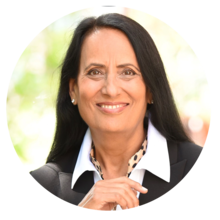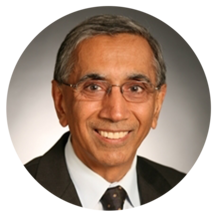About this Presentation
The problem of happiness is, that everyone aspires to be successful and live a happy, fulfilled life; but life for most, is happy only in patches, mediocre largely and stressful in chunks. In his session, Deepak will strongly advocate that ‘thinking’ should be viewed, invested in and used as a ‘life skill’- it holds the key to that happier life we aspire for’. It is our access, our password to happiness. His session, in many ways, will be a re-iteration of Eli’s message (from his seminal work The Choice), of urging us to ‘Thinking Clearly’- in all dealings with family, friends, work- for a meaningful, fulfilled life. Eli’s message was life transformative- yet, it had found low awareness and usage in managing a) personal affairs, day-to-day transactional affairs, relationships etc- both at work and at home b) amongst the average TOC practitioner, indicating that there were some missing pieces in the ‘thinking jigsaw puzzle’. Deepak’s quest for those few missing pieces, ended with him finding those in the thought process and tenets of the Nobel Laureate Daniel Kahneman and Vedanta exponent, Swamy Parthasarathy. Together, these additional pieces would better solve the ‘Thinking jigsaw puzzle’- the major part of which was solved by Eli. Integrating their perspectives suitably into Eli’s ‘Thinking Clearly’ narrative, Deepak has been able to successfully develop a new ‘composite narrative’ on Thinking. Deepak will be sharing his composite narrative- along with some easy to follow guidelines, practices, and day to day thinking templates – this should help us pluck the low hanging fruits and get on the path of a happy and a fulfilled life…. Video length: 1:20:00. PDF: 51 slides.
What Will You Learn
To help you get the most value from this session, we’ve highlighted a few key points. These takeaways capture the main ideas and practical insights from the presentation, making it easier for you to review, reflect, and apply what you’ve learned.

Thinking productivity, or the ability to manage and generate thoughts effectively, is crucial for achieving happiness
Active clear thinking, which involves understanding the underlying cause-effect relationships in situations, is a benchmark for good quality thinking
There are two modes of thinking - fast (intuitive and instinctive) and slow (deliberate and logical) - and understanding how to optimize the use of both can improve thinking productivity
Instructor(s)
Deepak Sethi

Ms Alka Wadhwa
Alka Wadhwa is an experienced consultant and process improvement expert with over 24 years of expertise in the Theory of Constraints (TOC), Lean Six Sigma, and organizational performance optimization. She has successfully led projects in healthcare, financial services, and manufacturing, driving significant improvements such as a 67% boost in hospital operations and a 140% increase in outpatient visits.
Previously, Alka Wadhwa spent 17+ years at GE Global Research Center, where she led initiatives to enhance various GE businesses through advanced technologies, process redesign, and system optimization. Founder of Better Solutions Consulting, LLC, she specializes in using TOC, Six Sigma, and data analytics to streamline operations and build high-performance teams.
Her work has earned her multiple accolades, including the Empire State Award of Excellence in healthcare.

Dr Gary Wadhwa
Dr. Gary Wadhwa is a Board Certified Oral & Maxillofacial Surgeon with extensive experience in the field. He completed his Oral & Maxillofacial Surgery training at Montefiore Hospital, Albert Einstein College of Medicine in Bronx, NY, and has served as an Attending at prestigious institutions like St. Peters Hospitals, Ellis Hospital, and Beth Israel Hospital in NY. With a career spanning over two decades, he was the former CEO and President of a group specialty practice in NY from 1994 to 2015. Dr. Wadhwa holds an MBA from UT at Knoxville, TN, and has undergone additional training in System Dynamics at MIT, Health System Management at Harvard Business School, and Entrepreneurship and healthcare innovations at Columbia Business School. Committed to expanding access to Oral & Maxillofacial Surgery care, he is currently engaged in a meaningful project to provide healthcare services to underserved populations in inner city and rural areas through non-profit Community Health Centers.
